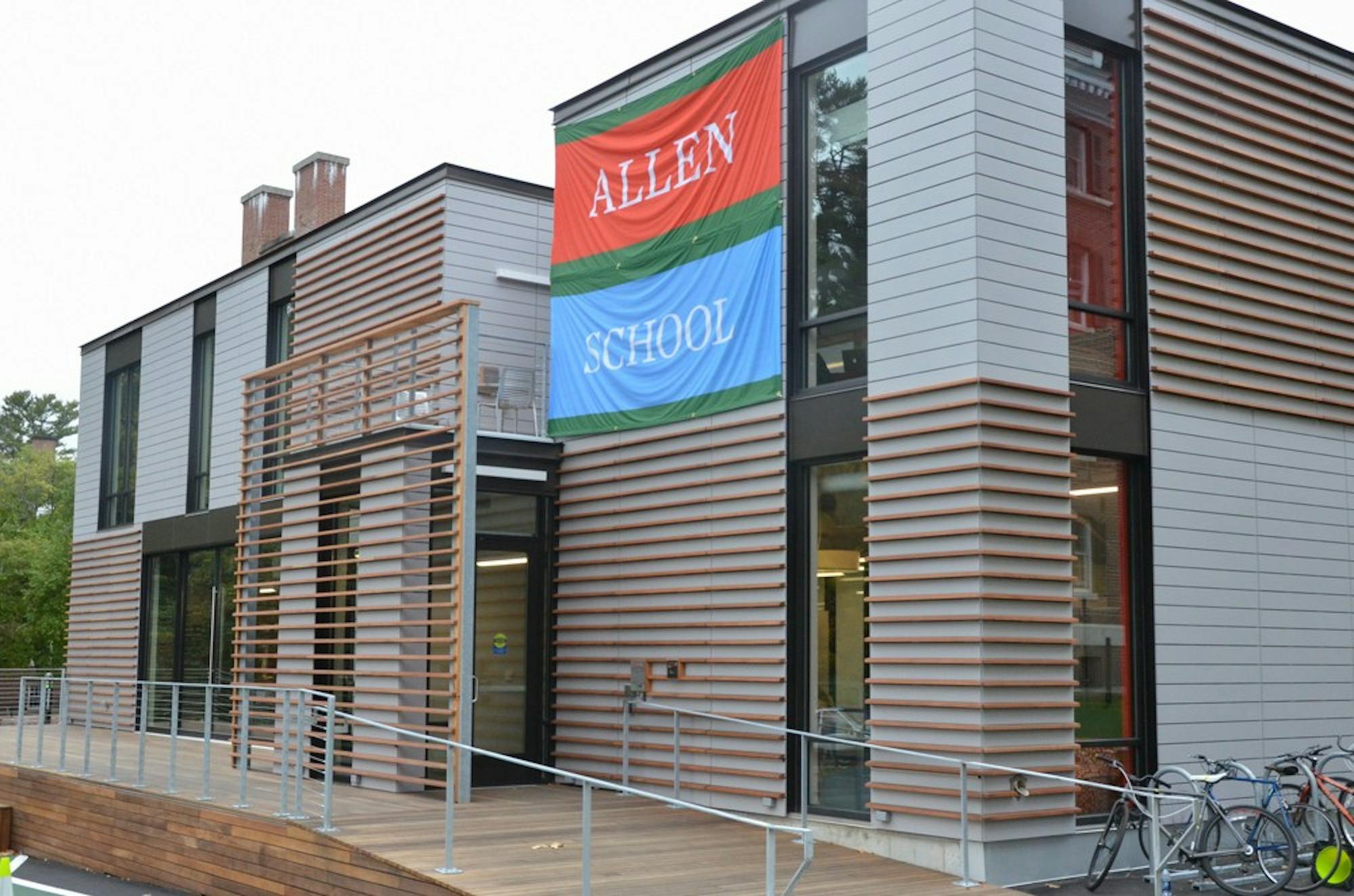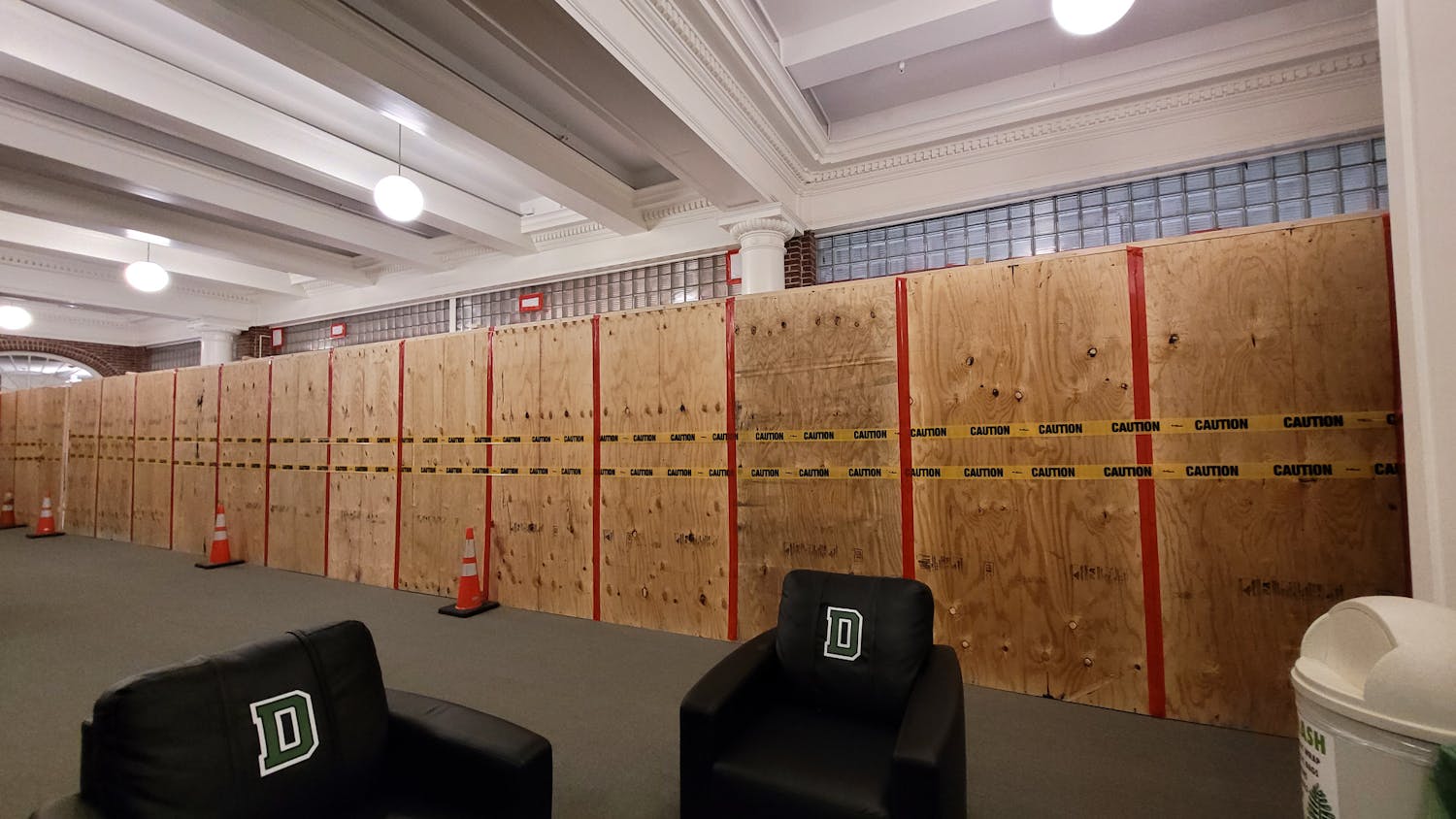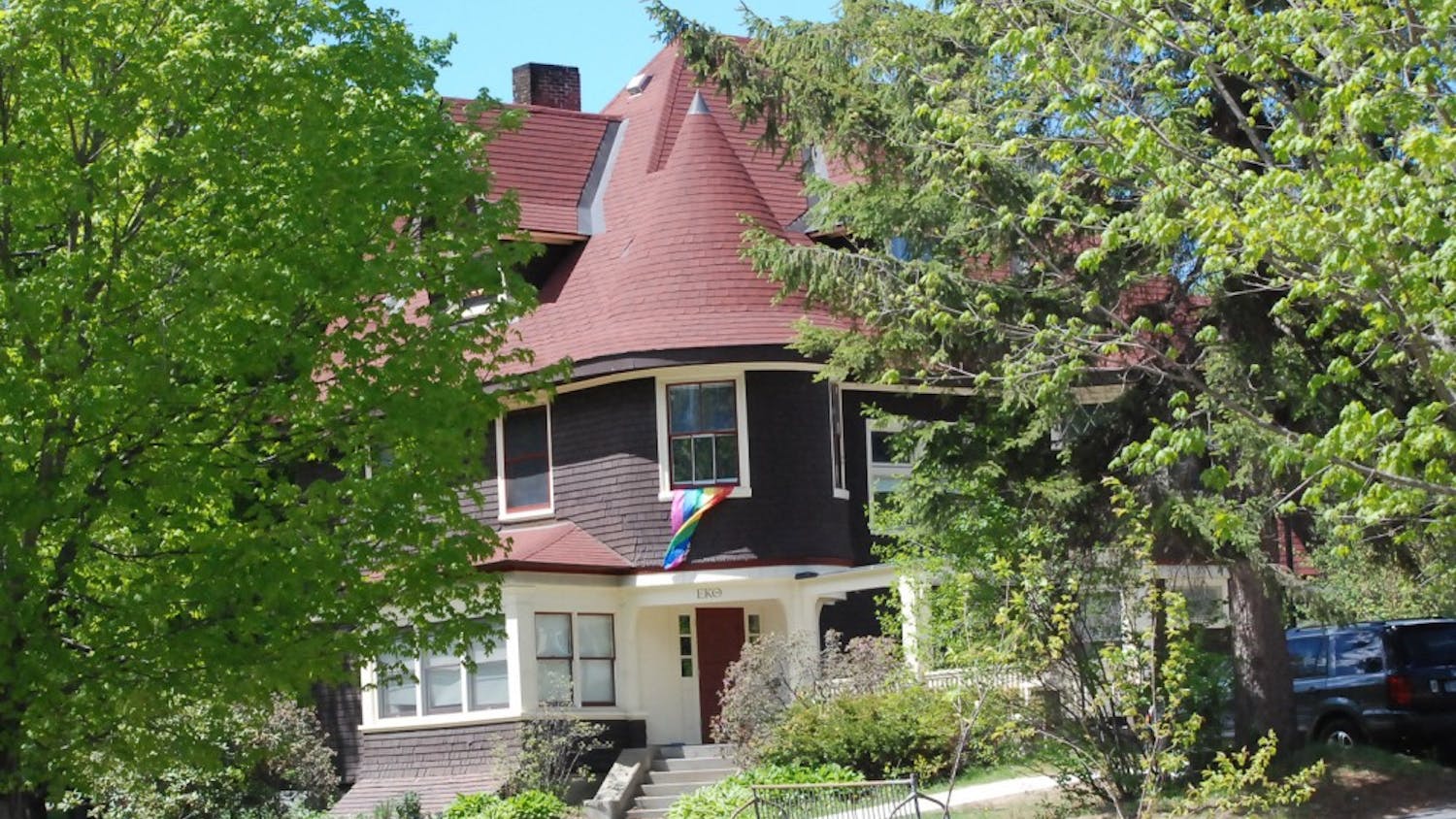After Dartmouth’s first term using the new housing system, house professors feel positive about the past fall’s programming and are hopeful for future events.
Last fall, the College debuted its newest addition to residential life: six new house communities meant to serve as consistent communities for all undergraduates. This new community model grouped together the various residential buildings on campus to form North Park House, South House, West House, School House, Allen House and East Wheelock House.
Faculty members were appointed as house professors last spring. They, along with their families, moved into College residences close to their respective houses. The leadership team of every house also includes an assistant director, undergraduate advisors and four resident fellows — graduate students living in the house community. Each house is also equipped with several resident experts, who are undergraduate students providing academic help to fellow house members.
Dean of the College Rebecca Biron replaced biology professor Ryan Calsbeek as house professor of North Park House shortly before the beginning of fall term. She was replaced in her house professor role this term by Native American studies professor Melanie Benson Taylor.
Biron said she appreciated her time as a house professor not only because she enjoyed serving in the role, but also because it allowed her as Dean of the College to see how the implementation of the housing system unfolded from an on-the-ground perspective.
Mathematics professor Craig Sutton, house professor of School House, said that reviews have been generally positive toward the house communities but added that enthusiasm seems to be inversely proportional to class year.
“We have to take a long-term view on this – that was just the first term and each term is a new step,” Sutton said.
Engineering professor Jane Hill, house professor of Allen House, said that her experience as a house professor was fun, stimulating and adventure-like.
“We have some brushstroke ideas about what we might be able to achieve but of course that can only happen when students are active and participatory,” Hill said. “I think we are still in that amorphous, creation stage.”
Some examples of past creations include the West House tailgate for the Homecoming football game, the “California Guitar Trio” performance for students at South House professor Kathryn Lively’s residence, South House’s “Breakfast for Free” hosted by the UGAs during reading period and an intramural soccer tournament that School House won. This quarter, the houses will partake in intramural basketball.
There were varying levels of participation and engagement in events in the fall, which was expected, Hickox said. He added that in the fall the main goal was to get programming off the ground first before gauging what works best.
“You can have a small number of students at an event but if you find that you’re building a community among those people, then it can be just as valuable as something where you have a lot of people there,” Hickox said.
Hickox added that the real sign of success is the building of a community of people who live around and engage with each other.
At the end of fall term, School House conducted a survey that gathered mostly positive reviews, with most students rating the House community programming as “average” or “above average,” Sutton said.
During the first term, neither students nor the leadership teams really knew what to expect from the communities, Biron said. She added that in the fall term it was important to devise the definition of success.
Lively added that the system also helps to break down barriers that may exist between faculty, staff and students.
“A lot of the faculty and staff, who wouldn’t get to know each other very well in other contexts, got to meet each other,” Hickox said. “One of the things we envisioned from the beginning was the fact that we could engage a lot of the faculty and staff in the communities and it would provide opportunities for them to connect with students and with each other.”
Last year, when the House communities were first announced, the student body had trepidations about the new system, Biron said, but this attitude of skepticism and discomfort has already begun to change beginning this winter term.
Lively said that the House communities have built more continuity on campus, as students know exactly where they will be returning to live.
Having students think of the residential halls as “their dorms” will change their physical relationship with the space and will give them a sense of ownership, Biron said. She added that students will now have an incentive to contribute to the building of the community around them.
Past students have often complained of the lack of control over their residential hall, Hill said, adding that she hopes students will appreciate the continuity provided by the Houses.
Students are also encouraged to initiate and plan events that catered to their own interests.
“Our goal is to have house activity be as student-driven as possible and as varied as possible,” Biron said, adding that she aims for academic and civic topic events as well as pure social events.
Lively said that South House had “pitchfests” where students could put forth their best programming ideas, which could then actually become part of the house agenda.
As part of this new residential life model, the College has also built two new House Centers to provide more common space for students. House Center A provides a one-floor space for primarily North Park and South House residents while House Center B is a two-floor space primarily for School and Allen House residents.
Lively said that while the new House Centers are “definitely a good study space,” she thinks more work could be done on transforming them into better social spaces.
A major problem encountered by the House professors has been communicating about their programming. There is so much going on every day that it can be hard for students to keep track of all the different events, Lively said.
In October 2016, the Student Assembly Senate was elected with each house having a representative from each class year.
Eric Chen ’17, an elected student representative of Allen House, said that he appreciates the distribution of students from each grade. However, he added that there is not yet a very strong sense of loyalty to the houses from their respective representatives simply because of the novelty of the new system.
“Ultimately the goal is to move away from the Greek system and so any form of community outside of the Greek system is moving in the direction of that goal,” Chen said.
This term, Allen House will be hosting RED talks, an imitation of TED talks. There will be four sessions of presentations and discussions with senior fellows and postdoctoral fellows from the College’s Society of Fellows.
Hill said that RED talks will be open to undergraduates, graduates, staff, faculty and community members. This will be a trial run and if it works, then starting in the spring it will occur weekly, she added.
Sutton said that School House is looking into the possibility of having a formal, taking trips to different locations such as the Ice Castles and having dinners in various locations on campus.
Hickox said that West House elected a student executive board in the fall, which helps with community programming.
However, unlike West House, School House does not have an officially-elected student executive board. School House meetings are open to all house members, allowing everyone to pitch ideas that interest them, Sutton said. He added that a house executive board will formalize this term and student leaders will have specific responsibilities.
Sonia is a junior from Ottawa, Canada. (That is the mysterious Canadian capital that no one seems to ever have heard of.) She is a double major in Economics and Government, with a minor in French. She decided to join The D’s news team in her freshman fall because of her love of writing, talking to people, getting the most up-to-date news on campus, and having a large community of fellow students to share these interests with.




